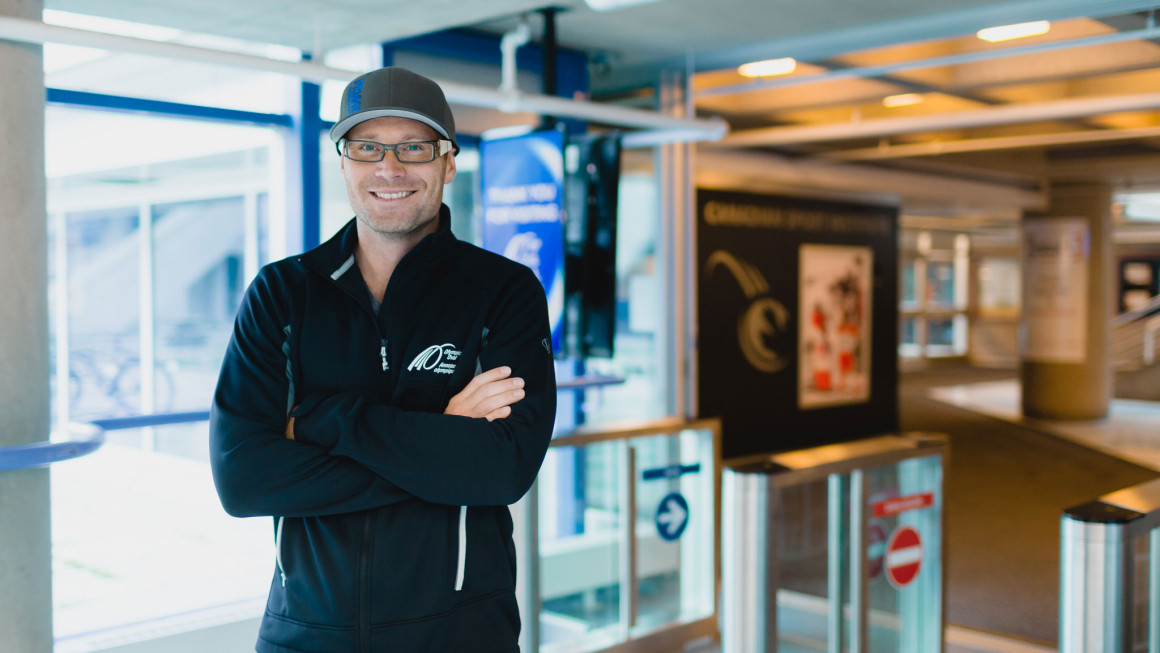
Personal trainers trump online fitness gurus
By Emilie Medland-Marchen, July 16 2015 —
Should you start your fitness journey with CrossFit? Going vegan? What about a paleo diet? With so many fitness buzzwords floating around online, it’s hard to cut through the noise and get to the root of fitness — improving your health.
With the Internet, it seems anyone can tout themselves as a health expert, regardless of their actual qualifications. All you need is a decent body and some social media skills to gain a following as a fitness guru.
What happened to the real experts? In the case of personal trainers, they’re alive and well.
Personal trainers are fitness experts who, unlike the Internet crowd, have the certificates to back up their claims. They provide the knowledge needed to develop a dedicated training regimen, while also addressing a variety of musculoskeletal, strength and endurance-related problems. Personal trainers can be pivotal in advancing personal fitness goals by helping with motivation and supervising technique to avoid injury.
The Active Living program on campus offers a personal training team for University of Calgary students.
Jeff Kitura is a personal trainer and former world-class speed skater who was a member of the Canadian National Team from 2002–11. Now retired, he’s a certified trainer with his gym, Kitura Fitness. Kitura works with clients from ages 11–17, and sees personal training as a valuable addition to a healthy and active lifestyle, especially for students.
“I think that being literate academically should be one with your physical literacy,” Kitura said. “I’ve had several guys who are engineers that I have trained, that can solve any math problem you can send at them without a calculator or any help. But they can’t even lift a weight properly. I think there’s something wrong with that picture.”
Personal training helps to establish a routine that complements a student’s busy schedule. In elementary school, daily physical activity is considered a necessity. But as students continue with higher education, this value falls by the wayside. It’s common for students to let their physical fitness falter. Coupled with unhealthy eating and sleeping habits, this neglect can result in a poor lifestyle that persists throughout adulthood.
Academia and athletics seem to be two separate worlds that can’t be integrated. Kitura thinks this is a big problem.
“People are getting winded going up the stairs to MacHall. There’s something askew with the way our culture is looking at health. Basic physical skills are neglected. Rather than health, we place a lot of value in wealth.”
Students also sit at desks all day, which can lead to posture problems and other health defects.
“You’re going to find that a student will be very hunched, with rolled in shoulders, a closed chest, and not utilizing their lungs like they should,” Kitura said. “So opening up the shoulders, doing some thoracic stuff, obviously core strength too, is very important. But it’s amazing how much your hips and your legs are involved in that as well. If your hips aren’t stable and you don’t have a good pelvis, you’re not controlling what basically holds up your whole frame.”
But fear of these potential health risks can’t be the only reason to get more active. Physical activity should be part of everyday life.
The term ‘physical literacy’ is used in sport science and medicine to describe a person’s ability to complete a range of basic physical movements and exercises. This includes the ability to bike, swim, run, squat and lift weights correctly. Like academic literacy, these skills are basics that students can build on.
Unfortunately, this concept isn’t emphasized in childhood development. As an adult, it becomes difficult to develop these skills, which are required to maintain a healthy lifestyle and find joy in physical activity.
For adults with gaps in their physical literacy, personal trainers can have a significant impact. They help lay the foundation of basic skills that build up to other exercises. Once this foundation is developed, working out becomes more fun, less inconvenient and more of a routine.
But what about the biggest concern to university students — affordability? Seeing a trainer three times a week can be pricey for students, ranging from $60–100 a session. Kitura says that affordability can be an issue when it comes to hiring a personal trainer, but there are options that make it cheaper.
“Working out as a group is going to be easier because you’ll have that social support as well as the help with the cost,” Kitura said. “But I don’t know if you can really put a cost on health. If someone feels that they don’t have the habits to get themselves training, even a few sessions with a personal trainer is going to go a long way and just kick the door in to get started. There’s a few basic exercises that you can get used to, and you can go a long way with them.”
If you really want to get serious about your health, hiring a personal trainer is an excellent first step.
